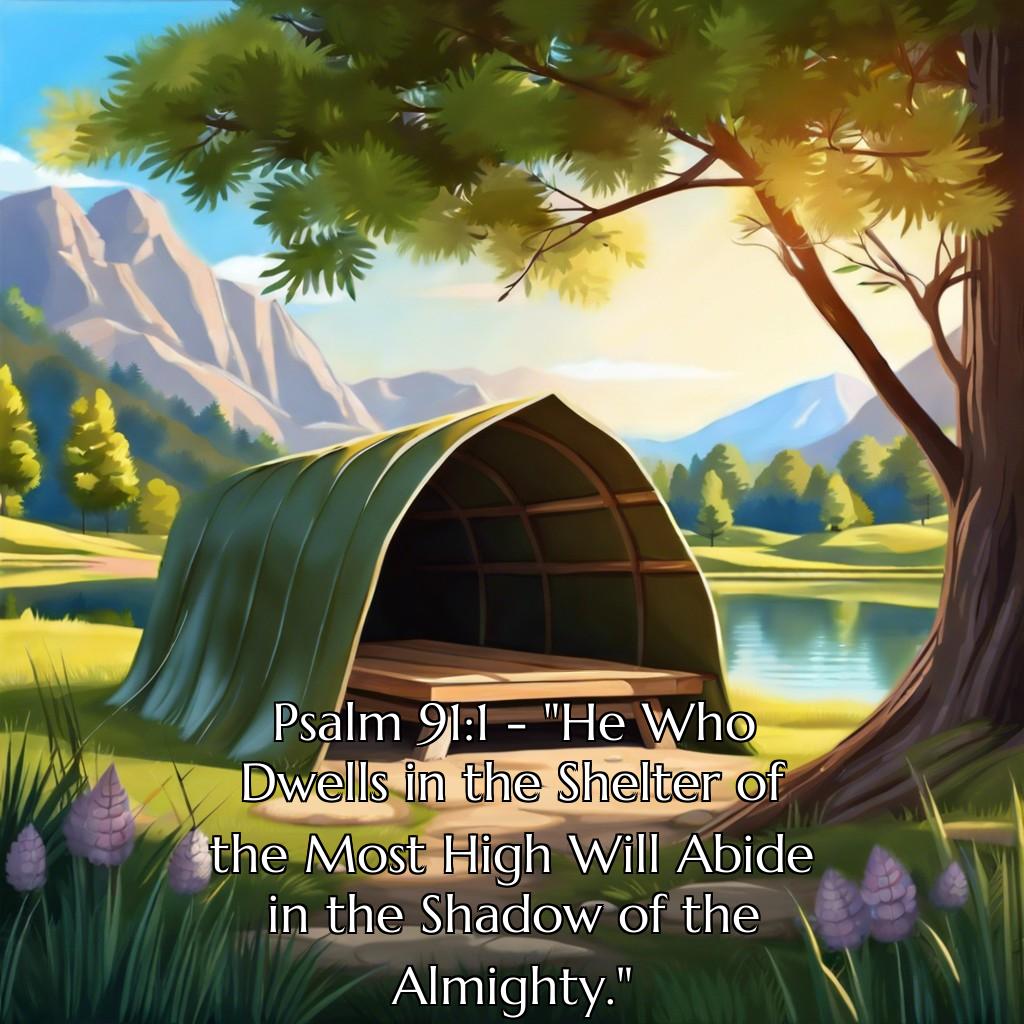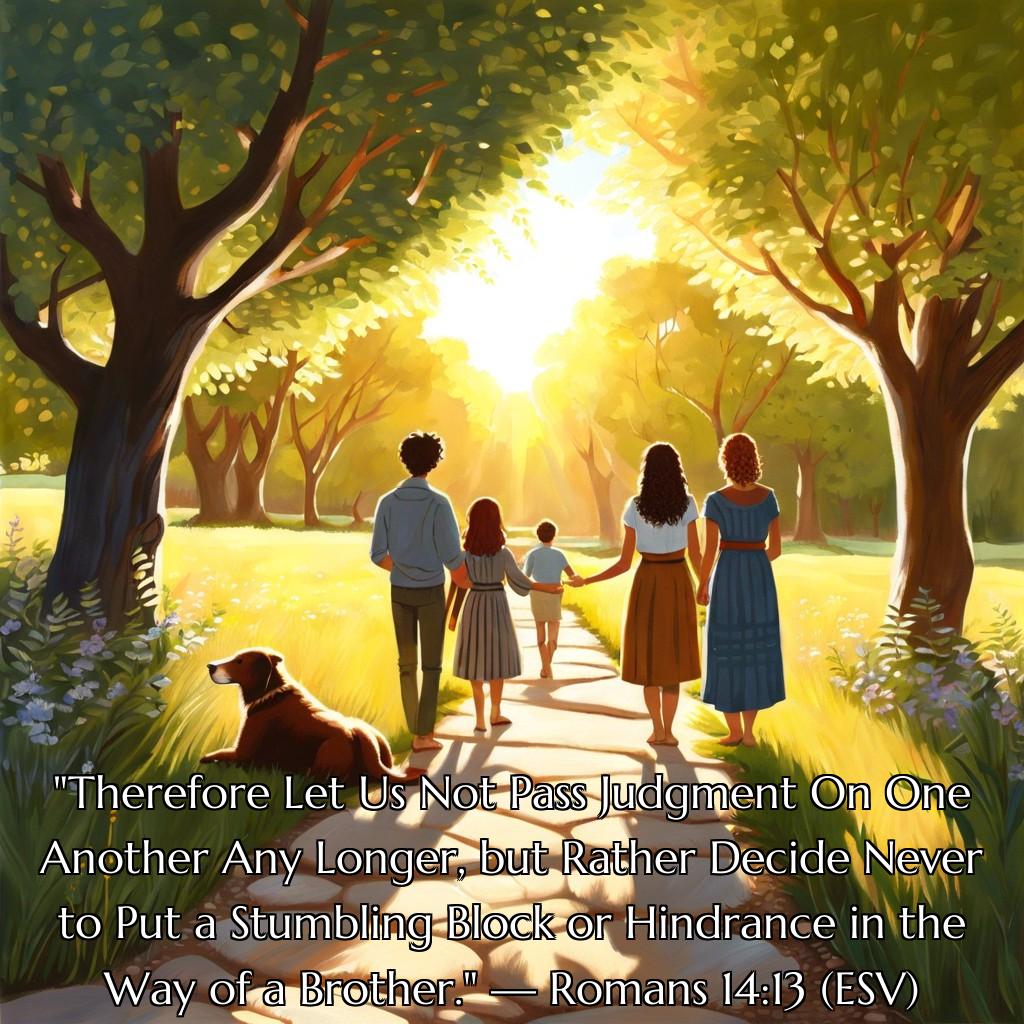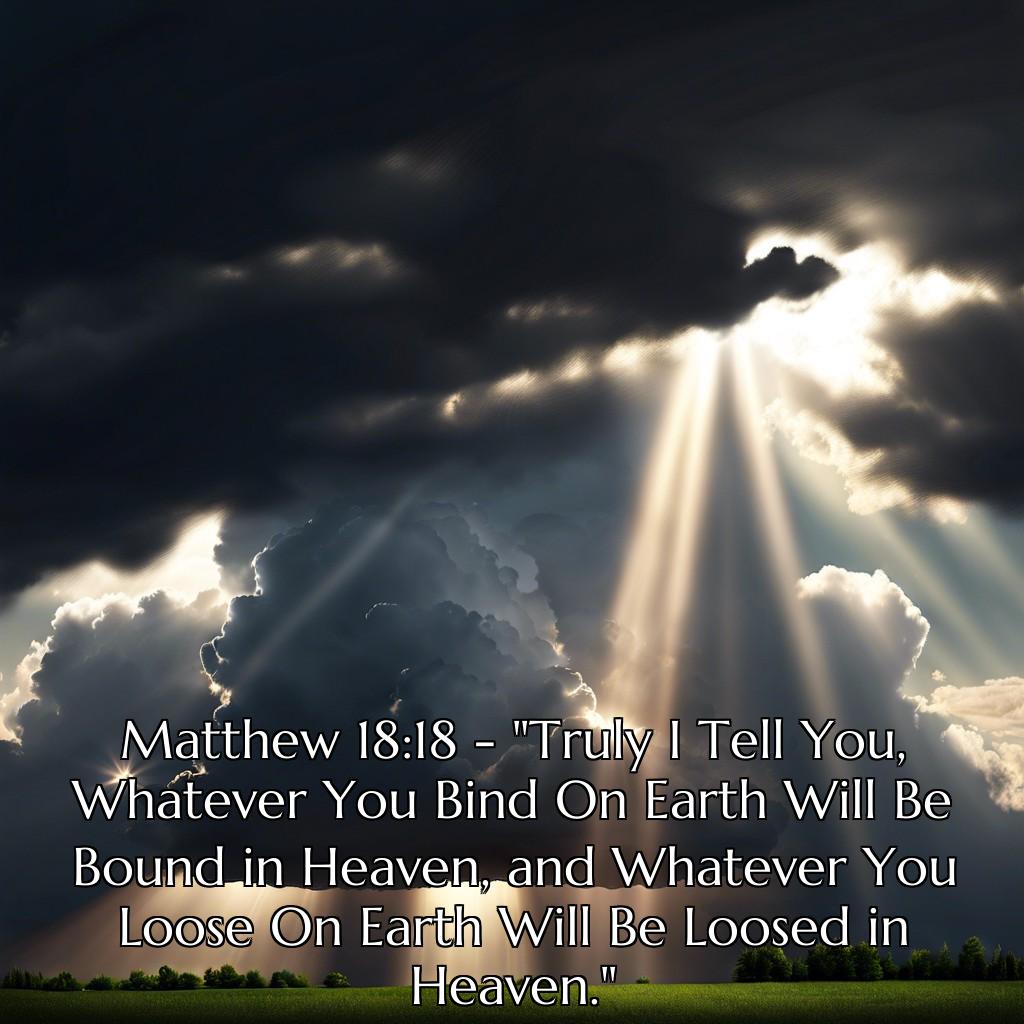Discover the meaning behind key bible verses that use flowers to convey spiritual lessons and truths.
Flowers often hold profound symbols of beauty, fragility, and divine care throughout the Bible. With their fleeting blooms, they offer rich imagery about life, God’s provision, and the enduring Word of the Lord. By exploring these carefully selected verses, you’ll uncover deeper meanings of how flowers illustrate spiritual truths and God’s eternal promises. Dive into scripture to see how flowers weave through the tapestry of faith, offering lessons of grace, humility, and renewal.
Matthew 6:28-29 – “And Why Do You Worry About Clothes? See How the Flowers of the Field Grow. They Do Not Labor or Spin. Yet I Tell You That Not Even Solomon in All His Splendor Was Dressed Like One of These.”
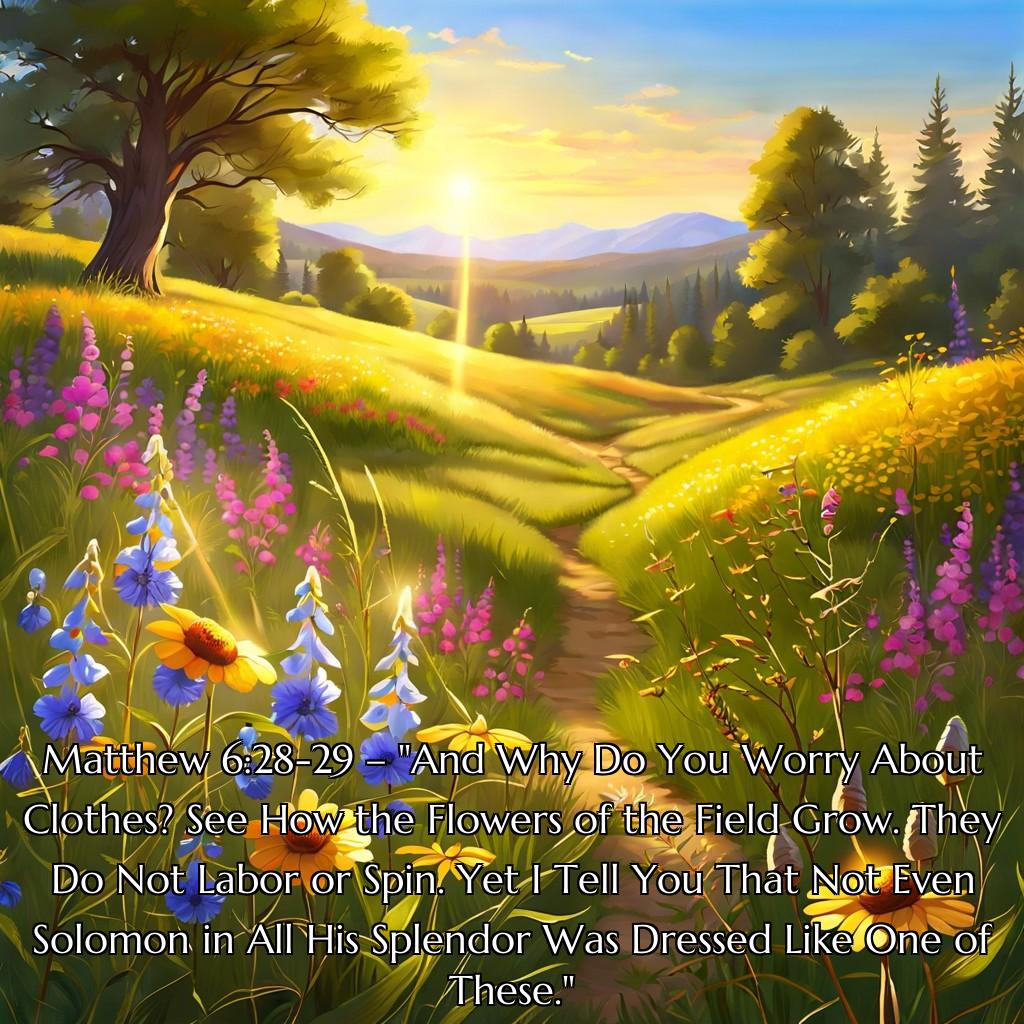
This verse invites readers to consider the beauty and care given to flowers by God, without their effort or toil.
- Divine Provision: Jesus emphasizes that if God clothes the flowers so magnificently, He will surely provide for His people even more.
- Trust over Worry: The comparison to Solomon highlights that human efforts cannot match God’s provision, encouraging trust in God’s care.
- Value of Simplicity: Flowers grow and thrive naturally, suggesting that life doesn’t need to be complex to be beautiful and valuable.
- Faith Focus: The message is clear—focus on faith in God’s provision rather than anxiety over material needs.
Song of Solomon 2:12 – “Flowers Appear On the Earth; the Season of Singing Has Come, the Cooing of Doves Is Heard in Our Land.”
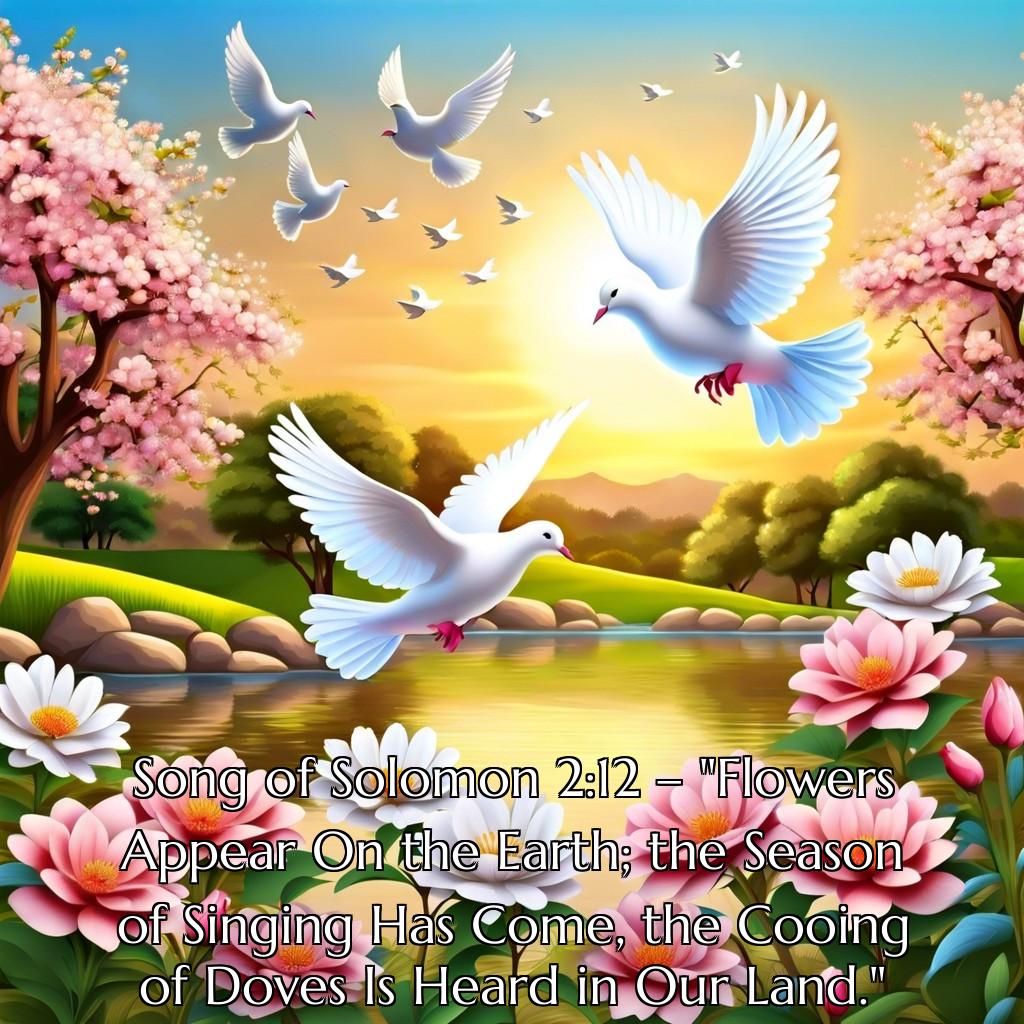
This verse beautifully depicts a season of renewal and celebration. Here are some key points to consider:
- Symbol of Renewal: The appearance of flowers signals the end of winter, symbolizing new beginnings and the revival of life.
- Joy and Optimism: The reference to singing and cooing doves introduces an atmosphere of joy and peace, suggesting that God’s creation naturally inclines toward harmony and happiness.
- Reflection of Divine Timing: It emphasizes that everything has its season, mirroring how God’s plans unfold perfectly in their appointed time.
- Imagery of Abundance: Flowers blooming across the earth represent abundance and the fullness of God’s blessings.
In essence, this verse uses the imagery of flowers and nature to illustrate themes of renewal, joy, divine timing, and abundance.
Isaiah 40:8 – “The Grass Withers and the Flowers Fall, but the Word of Our God Endures Forever.”
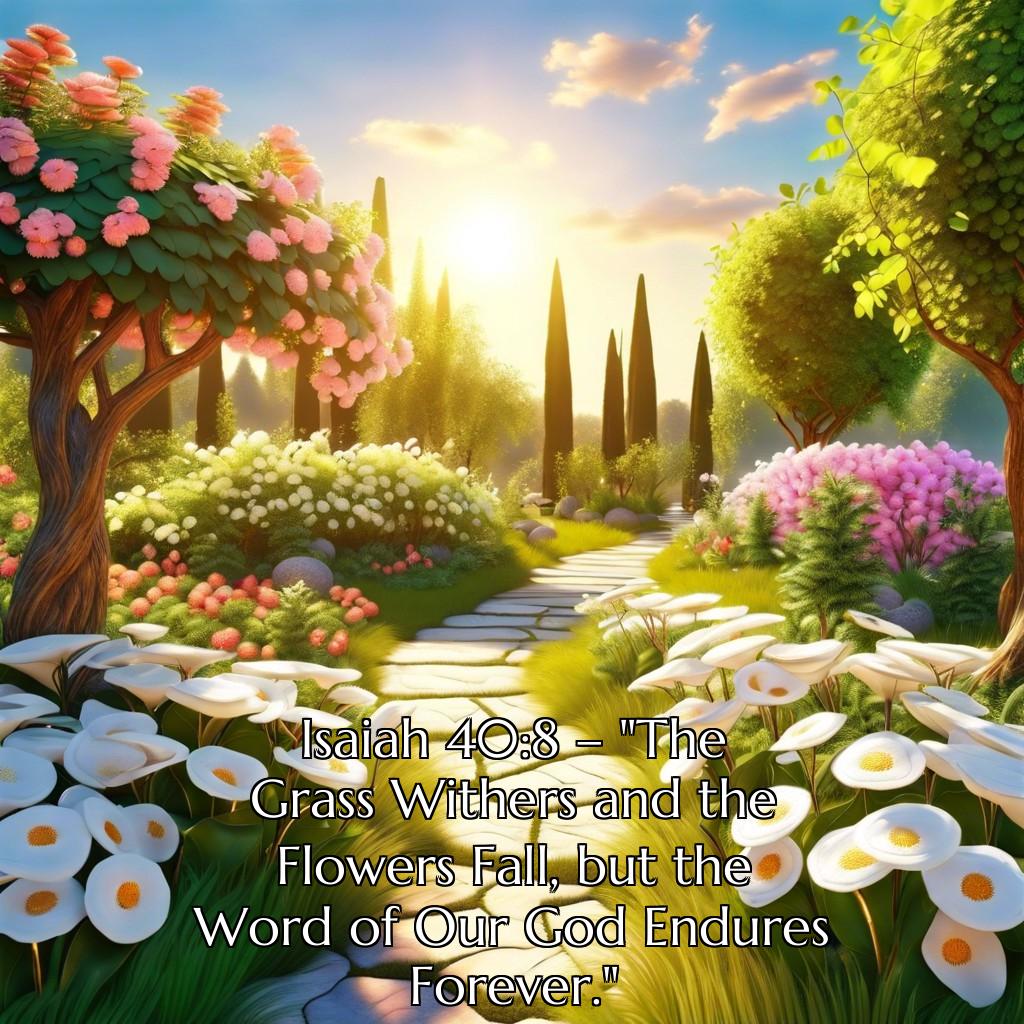
Isaiah’s words emphasize the fleeting nature of earthly things. Flowers and grass, symbols of beauty and life, inevitably fade and wither. This serves as a reminder of life’s impermanence and the transient beauty of the world around us.
In contrast, God’s word stands eternal. It remains unchanging and steadfast through all times and seasons.
- Here are some key points to consider:
- Life’s temporary nature highlights the importance of spiritual focus.
- Earthly things, no matter how beautiful, will pass away.
- God’s promises and truths are reliable and everlasting.
- One should find comfort and guidance in the enduring nature of the divine word.
This verse encourages a shift from the temporal to the eternal, urging believers to anchor themselves in what remains forever.
Isaiah 35:1-2 – “The Desert and the Parched Land Will Be Glad; the Wilderness Will Rejoice and Blossom. Like the Crocus, It Will Burst Into Bloom; It Will Rejoice Greatly and Shout for Joy.”
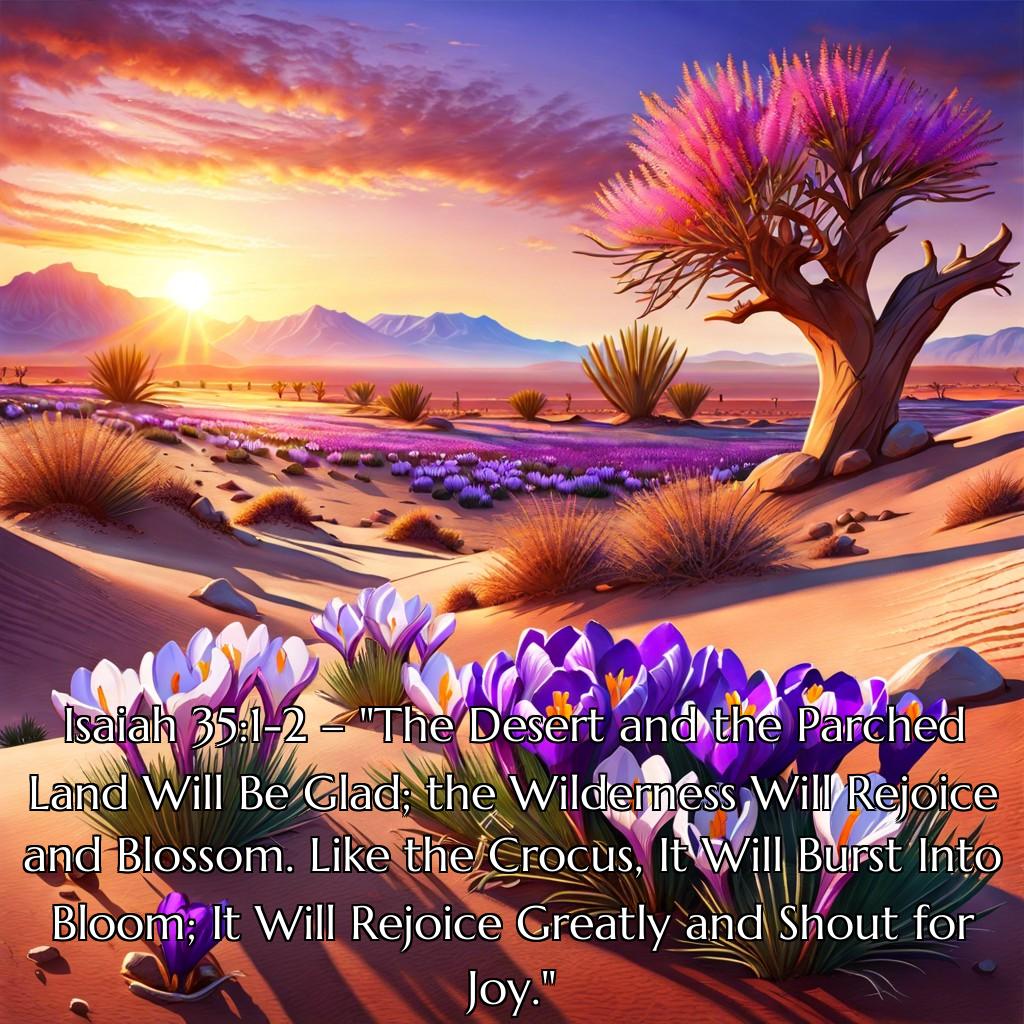
This verse offers a vivid picture of transformation and renewal.
- Hope in Barren Lands: It showcases God’s ability to bring life to desolate places. Just as flowers bloom in an unexpected desert, God’s intervention can bring hope and restoration.
- Joyful Rebirth: The verse speaks of joy and celebration. The blossoming flowers symbolize moments when life bursts forth with beauty and happiness, even in the most unlikely scenarios.
- Faith in Change: Like the crocus blooming in the wilderness, it encourages us to have faith in God’s power to bring change. Even our most barren moments can be transformed.
- Symbol of New Beginnings: The wilderness rejoicing and blossoming acts as a metaphor for new starts and vibrant futures, reinforcing that God can turn any situation around for the better.
1 Peter 1:24 – “For, ‘All People Are Like Grass, and All Their Glory Is Like the Flowers of the Field; the Grass Withers and the Flowers Fall.'”
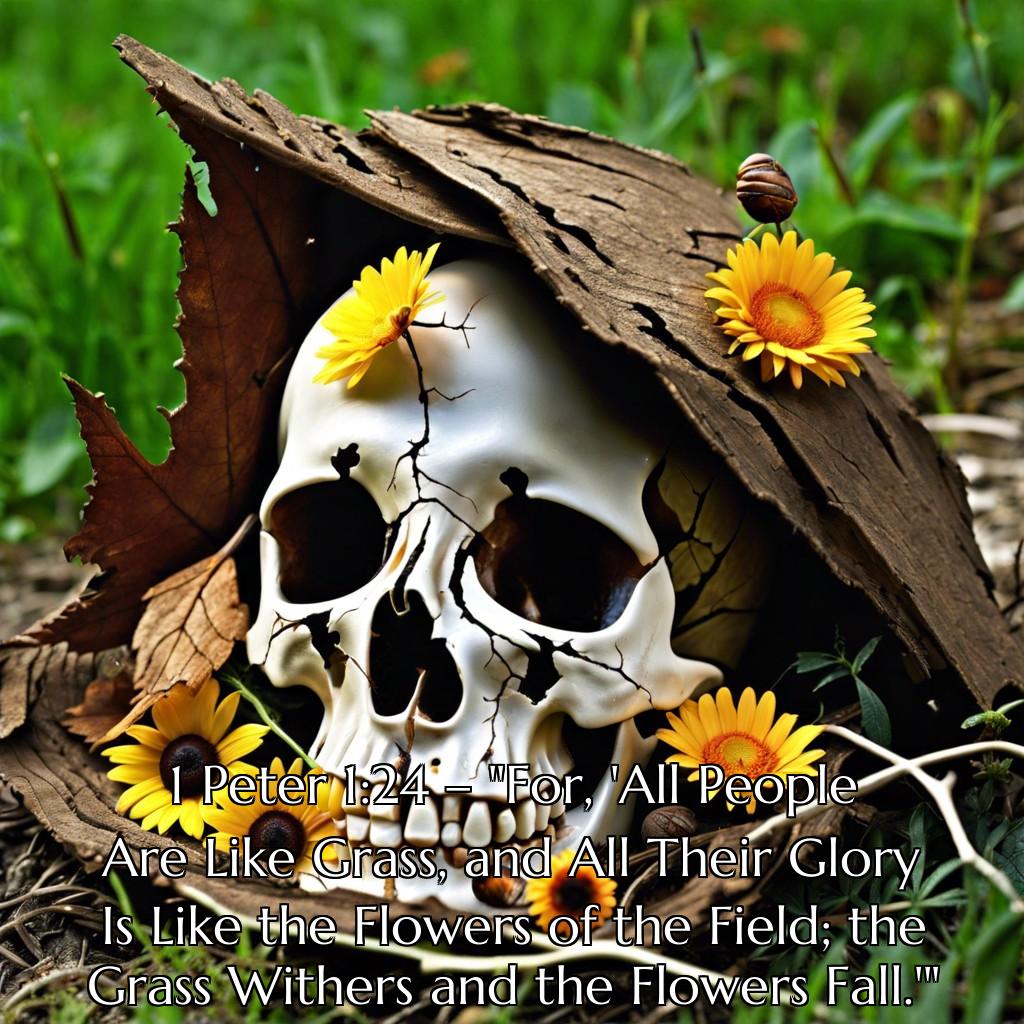
This verse poignantly reminds us of the fleeting nature of human life and glory. Here are some key points to understand:
Human life is temporary. Just like grass and flowers that thrive for a season and then fade, our time on earth is brief.
Glory is fleeting. The achievements and beauty that people may pride themselves on will not last forever. They are as temporary as the bloom of a flower.
Reflection on mortality. This verse encourages humility, urging us to focus on the eternal rather than getting lost in temporary gains or appearances.
Anchor in God. While our lives and glories fade, God’s word endures. It highlights the contrast between human frailty and divine permanence.
Embrace simplicity. Understanding the transient nature of life can lead us to live more simply, valuing what truly matters in the light of eternity.
James 1:10-11 – “But the Rich Should Take Pride in Their Humiliation—since They Will Pass Away Like a Wild Flower. For the Sun Rises With Scorching Heat and Withers the Plant; Its Blossom Falls and Its Beauty Is Destroyed. In the Same Way, the Rich Will Fade Away Even While They Go About Their Business.”
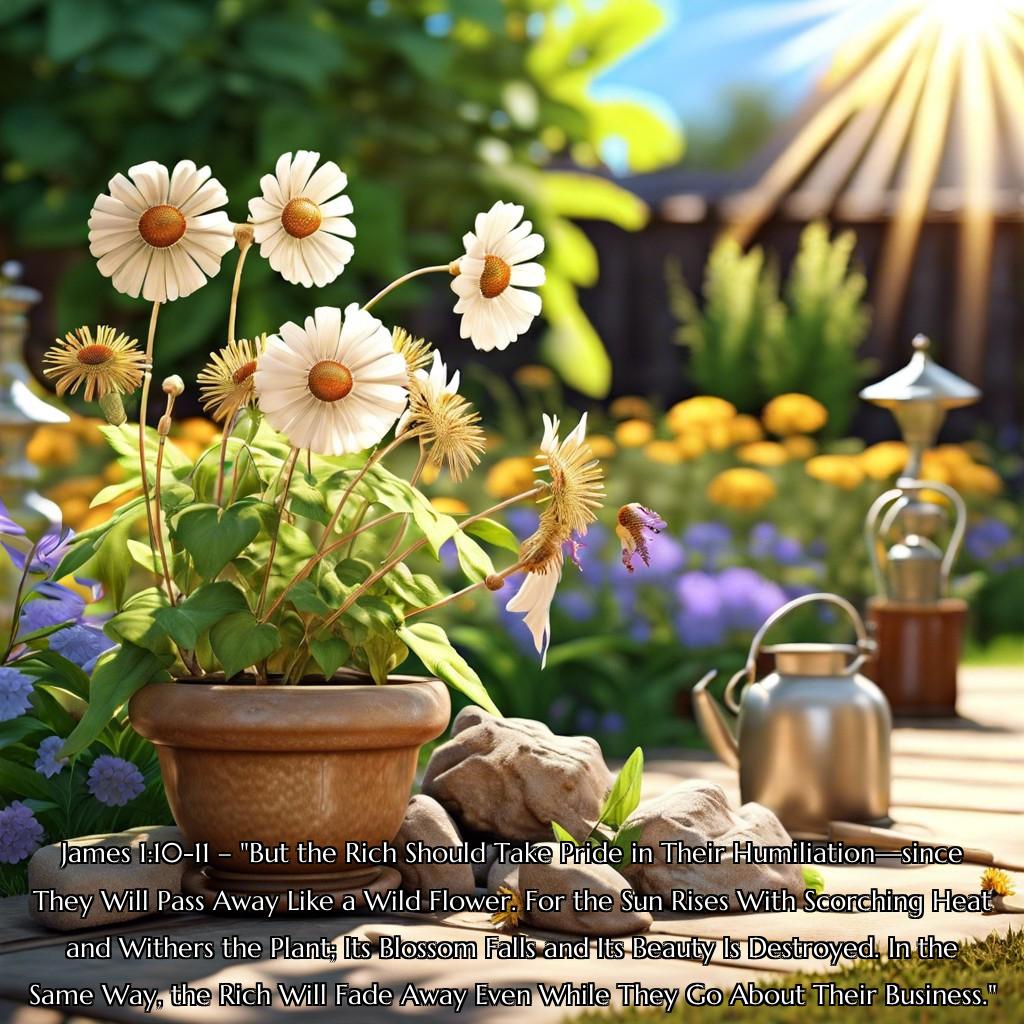
This verse serves as a humbling reminder of life’s transitory nature and the fleeting nature of material wealth. It compares the lives of the rich to wildflowers, which are beautiful yet temporary. This metaphor underscores a few key points:
Wealth is temporary. Just as the sun withers a flower, life’s challenges can diminish material wealth quickly.
Humility is crucial. Riches can breed pride, but this verse calls for a humble acknowledgment of life’s impermanence.
Focus on lasting values. Rather than being consumed by wealth, focus on what truly endures—faith, love, and righteousness.
In essence, it’s a call to prioritize what matters most in the face of life’s inevitable ebb and flow.
Psalm 103:15-16 – “The Life of Mortals Is Like Grass, They Flourish Like a Flower of the Field; the Wind Blows Over It and It Is Gone, and Its Place Remembers It No More.”
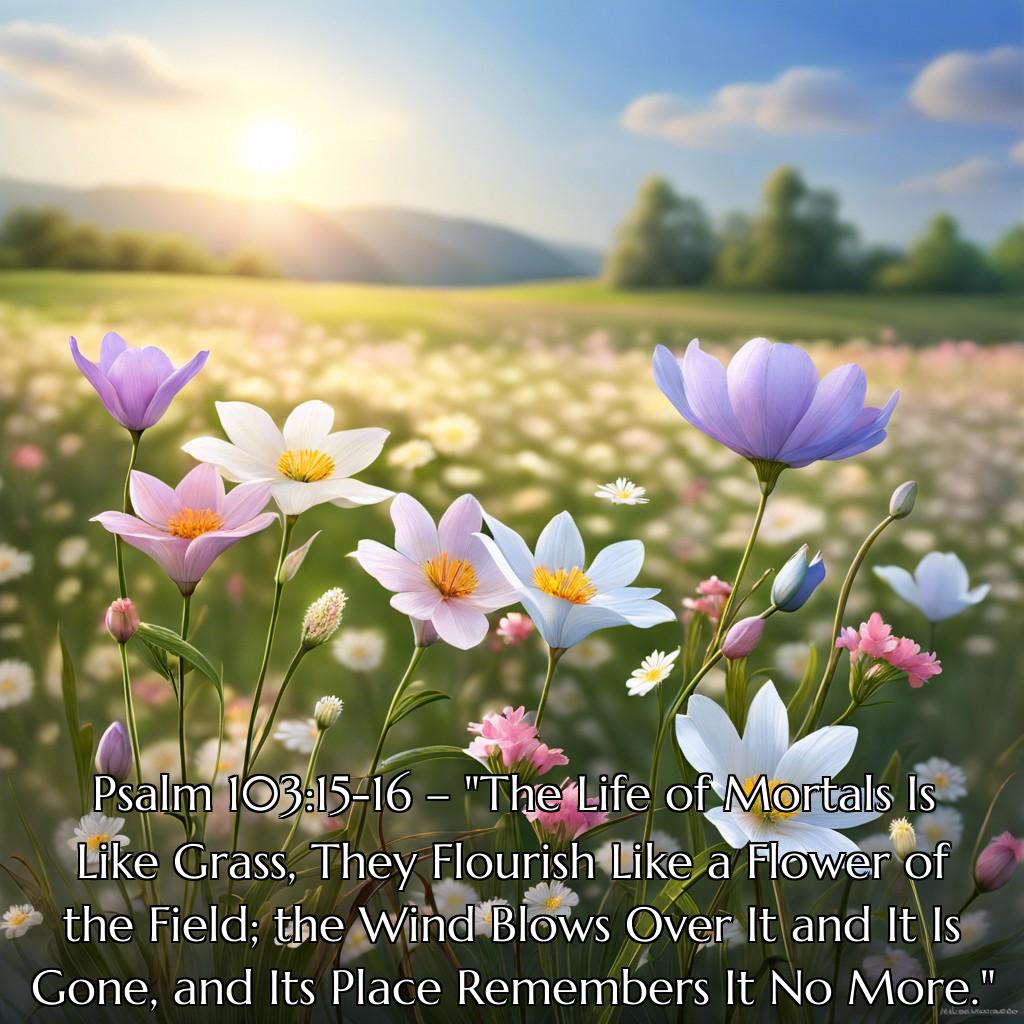
This verse serves as a poignant reminder of the brevity and fragility of human life. Just like the grass and flowers of the field that flourish for a short season, our lives too are fleeting and temporary.
The comparison to flowers blossoming highlights our moments of growth and beauty. Flourishing symbolizes our achievements, joys, and the peak of our existence.
However, the wind that blows over, causing the flowers to vanish, reflects life’s unpredictable challenges and the inevitability of change. Lives can be altered in an instant, leaving no lasting trace.
Finally, it aims to shift our focus from the transient nature of earthly life to the importance of seeking what is eternal and everlasting. Redirecting our priorities can offer a deeper sense of purpose and fulfillment.
Hosea 14:5 – “I Will Be Like the Dew to Israel; He Will Blossom Like a Lily. Like a Cedar of Lebanon He Will Send Down His Roots.”
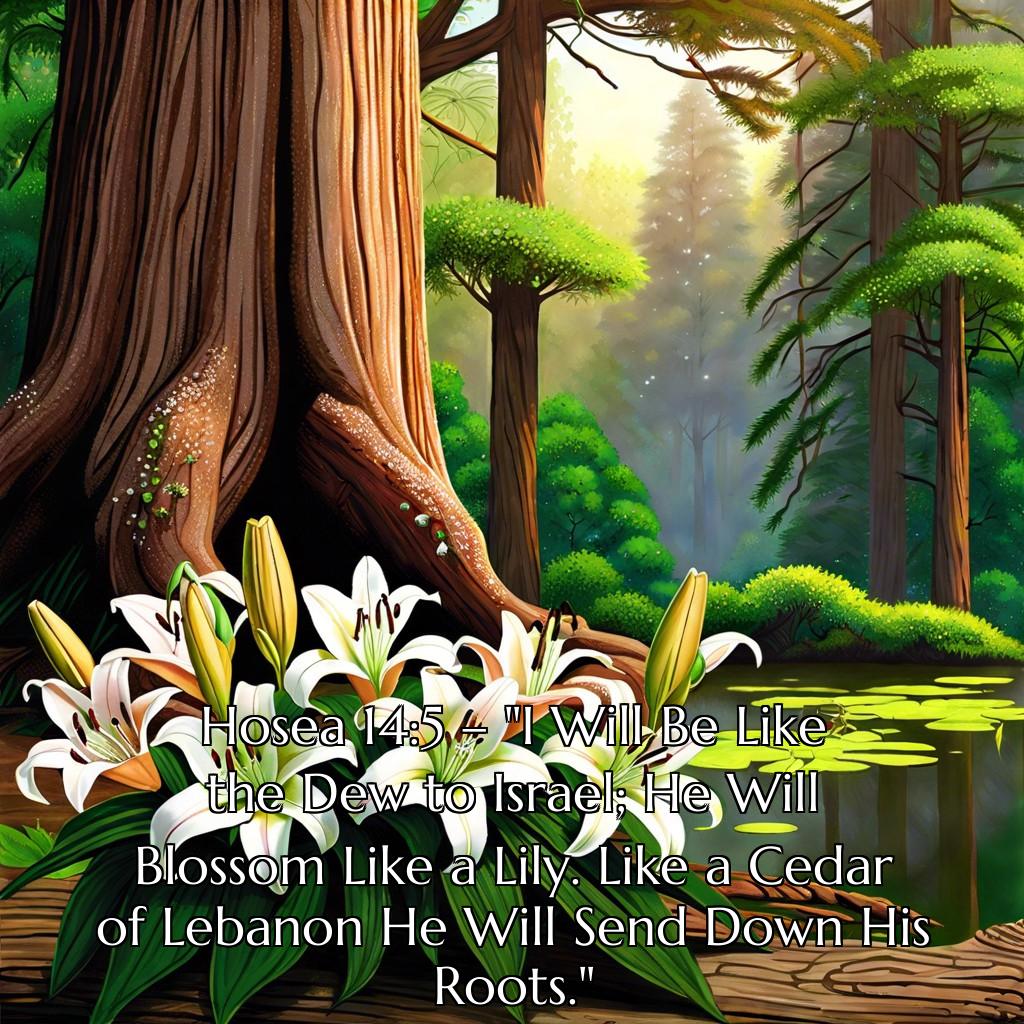
This verse offers rich imagery that conveys God’s nurturing presence and the flourishing of Israel under His care.
- Dew symbolizes renewal and sustenance. Just as dew nourishes the earth, God’s grace refreshes the soul of Israel.
- The lily, a beautiful and delicate flower, represents purity and growth. Similarly, under God’s influence, Israel will thrive and prosper.
- The cedar of Lebanon, known for its strength and deep roots, illustrates stability and endurance. With God’s guidance, Israel will grow strong and rooted in faith.
These images together highlight a transformation from fragility to strength under divine care. This verse reassures us of the nurturing and stabilizing power of God’s presence.
Luke 12:27-28 – “Consider How the Wild Flowers Grow. They Do Not Labor or Spin. Yet I Tell You, Not Even Solomon in All His Splendor Was Dressed Like One of These. If That Is How God Clothes the Grass of the Field, Which Is Here Today, and Tomorrow Is Thrown Into the Fire, How Much More Will He Clothe You—you of Little Faith!”
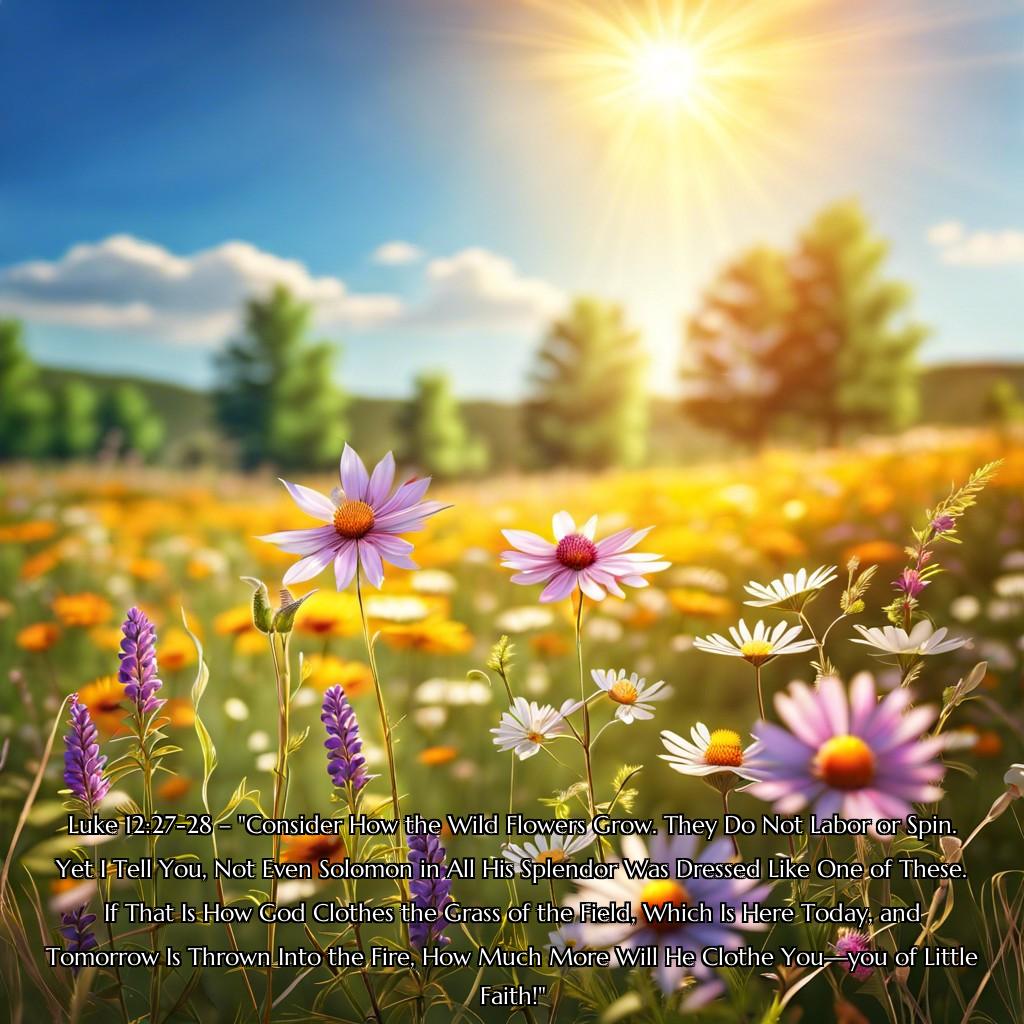
This passage brings attention to the effortless beauty of wildflowers. They do not labor or spin, yet their splendor surpasses even that of King Solomon, renowned for his wealth and opulence.
Here are a few points to consider:
- God’s Provision: The wildflowers’ beauty is a testament to God’s provision, implying that He will also take care of our needs.
- Value of Creation: It highlights the intrinsic value found in creation, even in something as fleeting as a flower.
- Cure for Worry: By reflecting on how flowers are clothed without effort, we are encouraged to trust in God’s care and let go of anxiety.
- Faith: The concluding part gently chastises a lack of faith, urging believers to have confidence in God’s attentive care for all His creation.
This passage is a vivid reminder of the Creator’s meticulous care for both nature and humanity.

